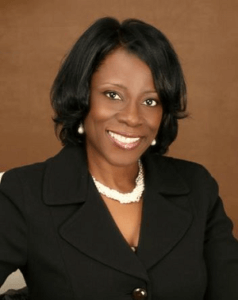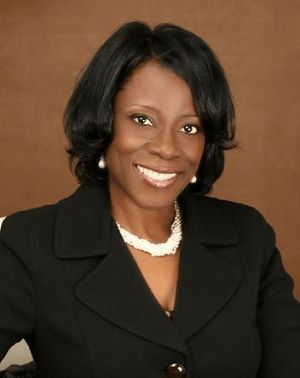An Interview with Charnella Derry, Beacon Hill Preparatory Institute
Charnella Derry reflects on the moment when she began to live her life with purpose, why she’s not tricked by ‘quick fixes,’ and why having Black women at the table when decisions are being made is critical to an equal and inclusive future.
his interview is the thirtieth in our series, Black & Bold: Perspectives on Leadership.
Charnella Derry, President/Co-Founder, Beacon Hill Preparatory Institute
Leader. Education. Purpose – A leader in the field of education living on purpose.
Twitter: @BeaconHillTX
What are some of your career highlights?
Working for a Fortune 500 company, Mobil Oil, in accounting was the highlight of my corporate career. Working for that corporation was a valuable experience because it prepared me, laid the foundation, for where I am today. When I left Exxon, I had the chance to work for a small woman-owned business, the Warrior Group, as the accounting and business development manager for over ten years. It was my experience there watching a good friend successfully run her Black-owned business that gave me the confidence to chase my dream. While working there, I started Beacon Hill Preparatory Institute, a nonprofit literacy and math tutoring organization, but it wasn’t until after listening to my pastor, Bryan Carter of Concord Church, preach a series on “What Is Your Plan B?”, that I seriously considered Beacon Hill being my Plan B. Shortly after, my husband wrote my resignation later and handed it to me one morning pledging his support after also pondering Pastor Carter’s words that I then had the courage to make the leap. This surprising act by my husband led me to practice what I had been preaching. It was time to make my Plan B in life a focus. I knew my Plan B was Beacon Hill. It was the beginning of me living in my purpose. (Charnella Derry pictured above.)
valuable experience because it prepared me, laid the foundation, for where I am today. When I left Exxon, I had the chance to work for a small woman-owned business, the Warrior Group, as the accounting and business development manager for over ten years. It was my experience there watching a good friend successfully run her Black-owned business that gave me the confidence to chase my dream. While working there, I started Beacon Hill Preparatory Institute, a nonprofit literacy and math tutoring organization, but it wasn’t until after listening to my pastor, Bryan Carter of Concord Church, preach a series on “What Is Your Plan B?”, that I seriously considered Beacon Hill being my Plan B. Shortly after, my husband wrote my resignation later and handed it to me one morning pledging his support after also pondering Pastor Carter’s words that I then had the courage to make the leap. This surprising act by my husband led me to practice what I had been preaching. It was time to make my Plan B in life a focus. I knew my Plan B was Beacon Hill. It was the beginning of me living in my purpose. (Charnella Derry pictured above.)
If there was a headline for your leadership journey throughout your career, what would it be?
It would be “Born to Lead.” Born to lead was spoken and instilled in me by my parents, William and Billie Swanson, from birth. They set the bar when it came to servant leadership for me. Education was in their blood. I watched them develop and grow a small private school, Loving Care, from five students in their home to the largest private school in Southern Houston. After watching my parents, I naturally stepped into leadership roles, from elementary school to college. Texas A&M University gave me an opportunity to continue to lead in areas that needed a voice, such as establishing the first gospel choir on the campus to bringing special guest speakers such as Alex Haley and Dick Gregory to speak on topics like racial inequality. But it was being involved in my sorority, Delta Sigma Theta, where I further honed my leadership skills while working on educational projects at the local elementary schools and community centers.
What are your favorite types of challenges?
For me, there are two types: things that have never been done before, and when people say that it can’t be done. I believe the status quo doesn’t have to be the status quo. Beacon Hill helps me to address both types of challenges by working with students who are not where they should be: not on grade level, on the verge of dropping out, or who cannot read. I work with students who may have given up on themselves, or other people may have given up on them too.
I like putting the right ingredients, the right people, together to make something happen or to make something new…something different. I take community partners into schools where we work with principals and teachers to birth a different outcome. I don’t believe in quick fixes. The problem didn’t occur overnight, so it can’t be fixed overnight. I enjoy the longevity of the process and seeing that process through to the end. For the students we work with, getting to grade level is a process. A lot of times people give up on students too soon; I like to stay in it to see the results that I know can actually happen.
What is one book that was meaningful or influential in your development as a leader?
The Purpose Driven Life by Rick Warren. I read it in my early 40’s and it was another light bulb moment that I needed to step out and do this (Beacon Hill). Education is my purpose, and I realized that this was something God designed me to do. It’s always been in me, but I let others talk me out of living my purpose. I was persuaded to pursue accounting because it would better serve me as a career. Starting Beacon Hill brought me back to and enables me to live in my purpose. I see students begin on one path and end up on a totally different path. It gives me joy to see graduates return to support Beacon Hill. I encourage people to find their purpose early and live in that purpose. Don’t just chase the money.
Work in the social sector can be very personal and linked to one’s values. Can you think of a time when your values were in tension during your career and how you reconciled that tension or not?
It goes back to where I am now with literacy and Beacon Hill. I went to a school board meeting and saw that most of the low-performing schools were in the southern section of the city marked by all these red dots. Every school not performing at grade level was marked, and I couldn’t understand why the city wasn’t alarmed. I realized that prisons are being built based on third-grade reading standardized tests. The school-to-prison pipeline is real. I felt personally responsible to change that…to prevent students from getting in the pipeline by ensuring they are properly prepared. Our motto at Beacon Hill is “success begins with preparation.” So now, I’m part of the solution. I’m out there with the parents and the students who need it most preparing them; making sure they are ready.
Summer 2017, Democratic Representative Maxine Waters coined the phrase, “reclaiming my time,” as she thwarted Treasury Secretary Steven Mnuchin’s attempts to waste her time with nonsense. Can you share an experience in the workplace where you have had to reclaim your time? What was the context? How did you navigate it? What was the outcome?
As the leader of Beacon Hill, I had to reclaim my time by coming out of the weeds and creating a plan to grow my business with the help of Goldman Sachs 10,000 Small Businesses and United Way Metropolitan Dallas. Being a business owner is like birthing a baby—you do everything you can to make sure it survives— but can lose sight of the vision by being in the weeds. Those organizations pushed me to get out of the weeds, hire the right people, train them, and have the vision. Reclaiming my time meant learning how to let go.
What’s your approach to self-care? Are there any rituals you use to survive and thrive?
When health issues arise, you start looking closely at self-care. I was forced to take care of myself. I’m committed to leaving work at work. The way that I am learning to disconnect is either going straight to the gym or taking a walk to mentally let go of work and flow into the next part of my day.
I’m learning to slow down now and be in the moment. I purposely spend time with family and friends who are put in my space for a reason by God. Be in the moment. Time together is important.
What advice would you offer other Black women trying to develop or amplify their voice and become self-advocates?
Don’t try to do it alone. There will be plenty of people who say it cannot be done. Surround yourself with others who share your vision. Network with people who have gone on the journey you’re trying to go on. With the Small Business Development Center, Goldman Sachs, and United Way, I am learning things now that I wish I had learned ten years ago. Alleviate the pain; collaboration is key. It takes a lot of stress off of you. Sometimes for Black women when we are trying to do something we may not want to share our ideas for fear someone else may take them. Surround yourself with the right people who believe in your vision. Go to the experts.
If you could change the social sector in a way that would benefit, lift up, or affirm Black women, what would that change be?
I would change it so more Black women are at the table and their voices are being heard. Sometimes just because we are Black women, we are intentionally left out of decision making. Having us at the table when decisions are being made is critical to an equal and inclusive future. Too often, we are the ones called upon once the decisions have been made, gone awry, and the problems are in motion. This has to stop. Let us be there to help implement, test, and develop—not just clean up. We also need to listen. I mean really listen to what we are saying. I have parents who tell me, “Mrs. Derry: It’s not that I don’t want my child to read. I’m juggling three jobs. By the time I get home, there’s no time.” At Beacon Hill, we listen to Black women about what their needs and pains are and invite them to be at the table to help solve them, not shut them out. We started parental groups to facilitate their voice at Beacon Hill, and words cannot express the joy I get from empowering these women to lift up their voices.



Comment section